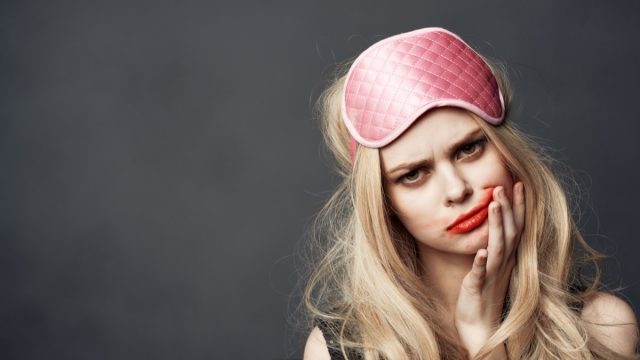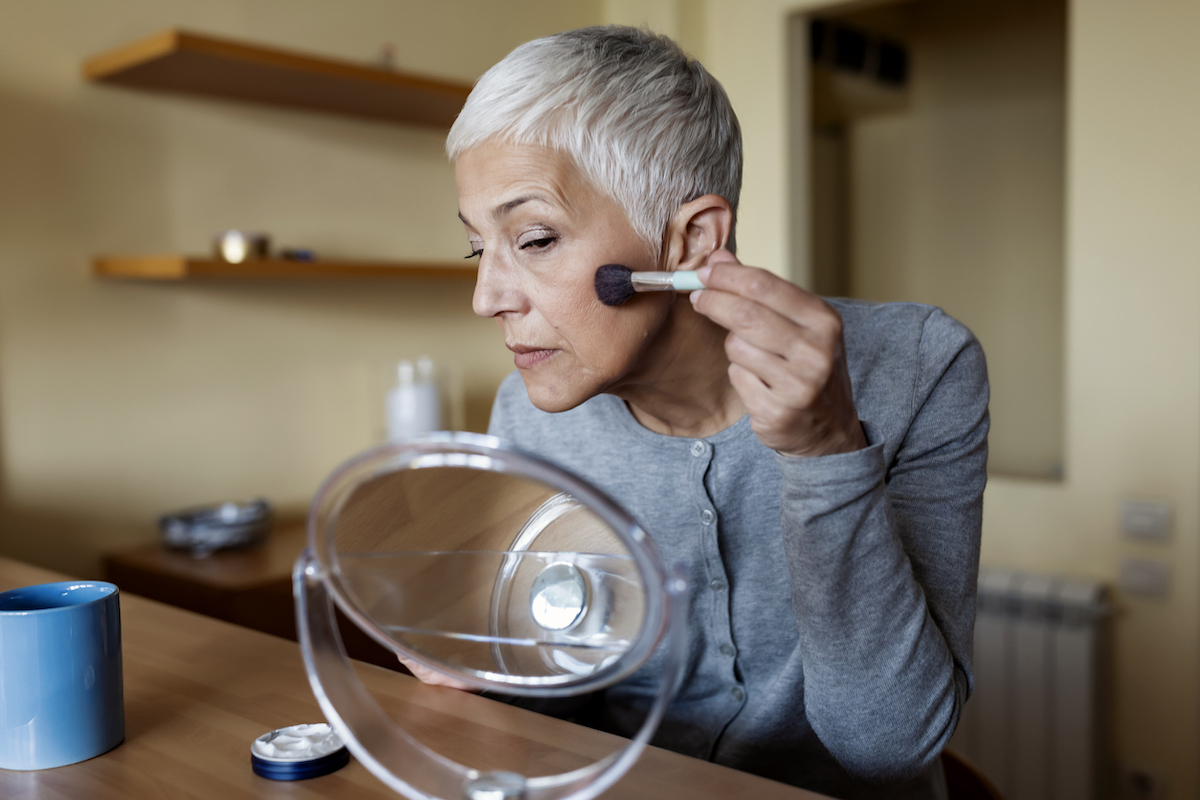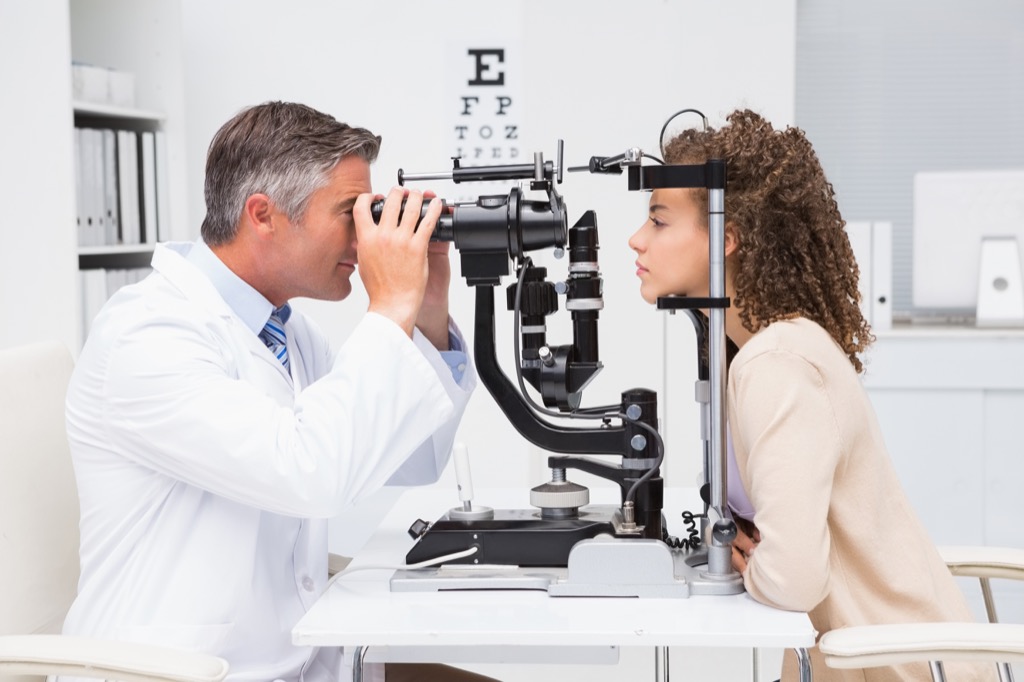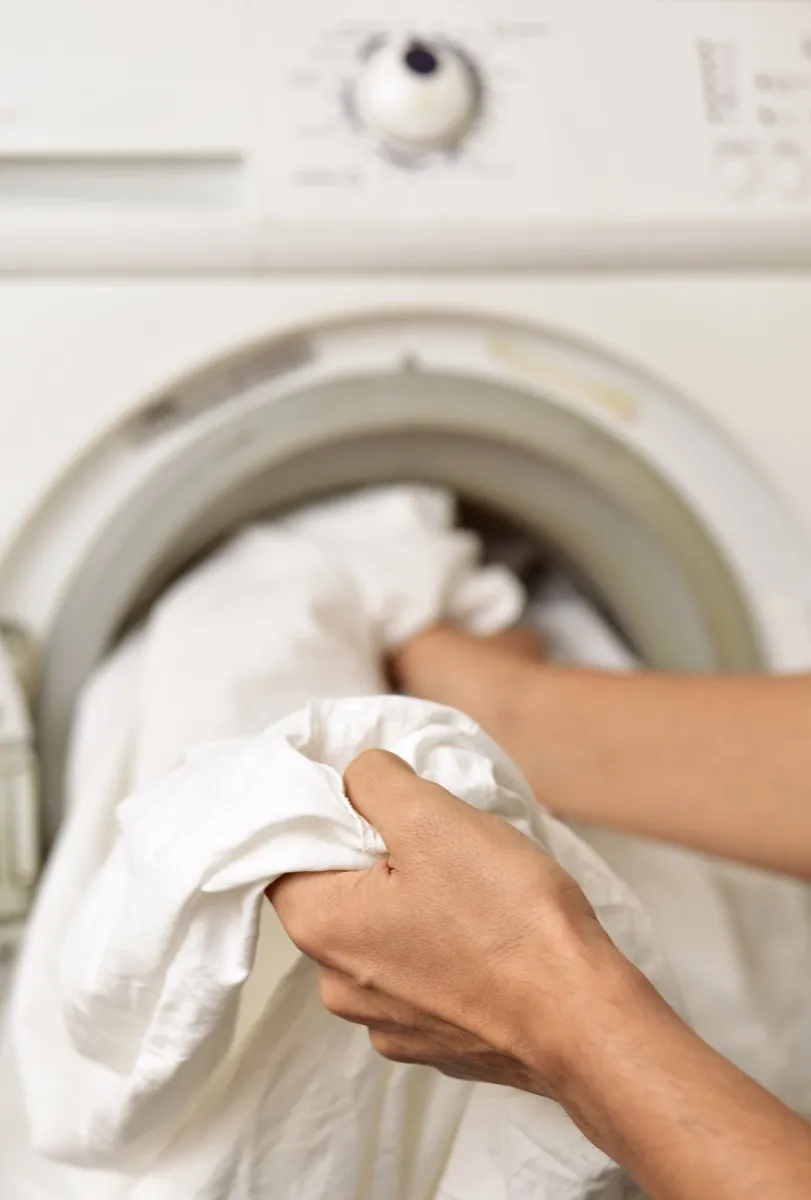What Happens If You Fall Asleep With Makeup On, According to Dermatologists

Whether you follow an elaborate, multi-step cleansing routine or simply rinse when you shower, washing and moisturizing your face can help your skin look its best. Yet who among us—through forgetfulness or sheer exhaustion—hasn’t hopped into bed with a full face of makeup on and let our skin suffer the consequences?
This common habit can cause a range of skin and eye problems, some experts warn. Yet others say the concern over sleeping in makeup is overblown—and hardly cause for worry. Read on to learn what happens if you fall asleep with your makeup on, according to two dermatologists with decidedly different takes.
READ THIS NEXT: Goldie Hawn Swears by This Grocery Store Product for Perfect Skin at 76.
Sleeping with makeup on can damage your skin, some experts say.

The common consensus is that falling asleep in your makeup is bad for your complexion, especially if your skin happens to be particularly acne-prone or sensitive.
“Your delicate skin and eyes will both suffer if you go to bed wearing makeup,” says Anna Chacon, MD, a board-certified dermatologist based in Miami, Florida and a writer for MyPsoriasisTeam. “Even that ‘only one night’ could result in a great deal of detrimental issues.”
Other possible consequences? Chacon cites more fine lines and wrinkles, “dull, lifeless” looking skin, clogged pores, and dehydrated skin from skipping your nightly moisturizer.
READ THIS NEXT: 5 Benefits of Letting Your Hair Go Gray, According to Stylists.
Going to bed with mascara on may lead to eye problems.

Just as a pimple can form when oil and dead skin cells become trapped under the skin, styes can form when an oil gland near the eyelash becomes clogged and infected. Chacon notes that falling asleep with makeup on can increase your odds of developing such an eye problem. She tells Best Life that making a habit out of falling asleep in your makeup “might irritate your eyes and possibly impair your vision.”
In fact, one woman in Australia, who admitted to rarely washing her mascara off at night over 25 years of use, found that the pigment had shifted into her upper eyelid. The horror story, first shared by the medical journal Ophthalmology and later and more extensively in Newsweek, served as a potent warning of the rare but possible danger associated with sleeping in mascara.
For more health news sent directly to your inbox, sign up for our daily newsletter.
Some dermatologists say sleeping in your makeup isn’t a big deal.

While it does seem prudent to wash and moisturize your face at regular intervals, one dermatologist says there’s nothing particularly damaging about failing to do so at night. In fact, she says there’s only one likely consequence to falling asleep with your makeup on: “You get a dirty pillowcase.”
“Yes, there are many dermatologists who say that makeup left on at night will clog pores, cause wrinkles, or age the skin. But the truth is, there are no valid studies proving any of these conclusions,” says Fayne Frey, MD, FAAD, a Nyack, New York-based dermatologist and author of the book The Skincare Hoax. “Women wear makeup all day long without any issue at all, and just because we lie horizontal at night and turn off the lights, somehow this very same makeup, most of which has probably worn off, becomes some kind of menace,” she tells Best Life.
“Millions of women go to sleep nightly without taking off their makeup. I bet you don’t know who they are!” she adds.
If you don’t wash your makeup off, be sure to wash your pillowcase.

A dirty pillowcase may itself come with skin-altering effects if left long enough, some experts say. This means more frequent washing may be required if you plan to skip your nightly skincare routine without consequence.
“If you don’t launder your pillowcase and sheets the next day, you risk reverse contamination, so even if you end up washing your face before going to bed, that residual product will be on your pillowcase already and in effect will transfer back onto your skin when you lie down,” Dendy Engelmann, MD, director of dermatologic surgery at Metropolitan Hospital, told Glamour.
The key, it seems, is to pay attention to what works for you and your skin type. By using a gentle cleanser and moisturizer—at least the majority of the time—you should be able to maintain your everyday glow without much interruption when your routine takes an unexpected turn.